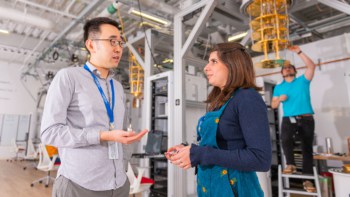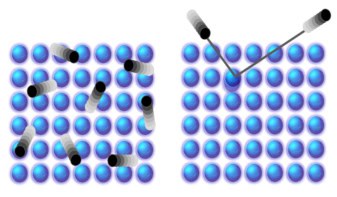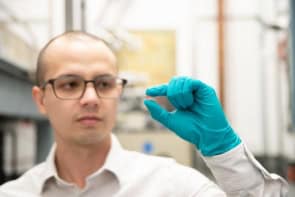Freeke Heijman from Quantum Delta NL tells Martijn Boerkamp about the opportunities and challenges of quantum technologies

How did you get into quantum tech?
I graduated from the Technical University of Delft’s Policy Analysis and Systems Engineering department in 1999 and after a two-year stint at KPN Research as a consultant, I joined the Ministry of Economic Affairs as an adviser in 2002. In 2013 – as head of strategy at the ministry – I visited the University of Technology in Delft to hear about their plans to start a quantum institute. Three years later the Netherlands held the presidency of the European Union and we helped to launch the €1bn Quantum Flagship programme. This led to interest from several Dutch research centres and companies, and to combine all this into a coherent national agenda I founded Quantum Delta NL last year together with Ronald Hanson and Jesse Robbers.
What is the role of Quantum Delta NL?
We are the Dutch umbrella organization that connects the five main quantum research hubs: Delft, Amsterdam, Leiden, Eindhoven and Twente. We bridge the gap between fundamental research and business, especially for start-ups that are taking quantum technology out of the lab and into people’s lives. With the Netherlands being such a small country, it is easier for these institutes to collaborate and this type of collaboration is unique – we don’t see it anywhere else. That’s why we think the Netherlands can have a world-leading role in quantum technology over the next decade.
And what do you focus on?
My role is to foster the best ecosystem for quantum technology development. By removing barriers between institutions and procedures, and by focusing on talent and entrepreneurship, we want to establish an open culture where innovation is possible. We also want to go beyond quantum technology being a field only for physicists. To develop quantum products and services for society, other disciplines will be important such as computer science, design, business and law.
We want to go beyond quantum technology being a field only for physicists
Quantum Delta NL recently received €615m from the Dutch government. How will that be spent?
We support research and development in three main topics: quantum computing, quantum networks and quantum sensing. The next step is to give start-ups a better and faster way to market by building new cleanroom facilities so they can develop their technology as well as providing early-stage investment and a tailored acceleration programme dubbed Lightspeed. Additionally, we put extra effort into educating and attracting people as well as the social impact of quantum technology. A dedicated campus for this “quantum ecosystem” – called the House of Quantum – will be operational from 2024.
What is the Netherlands doing in quantum networks?
Last July saw the live demonstration of a quantum-encrypted video being transferred across a quantum connection between Delft and The Hague. Late November we went live with an advanced quantum internet through our Quantum Network Explorer (QNE). QNE is the “software stack” to run such a network. Currently it runs on an emulated quantum network but this will be upgraded to actual quantum hardware soon. We use these demonstrations to show the technology’s capability to potential end-users and technology suppliers and give them a chance to participate.
What are the main challenges for Quantum Delta NL?
The main challenges are to scale up the ecosystem and engage with European industry. The key to these challenges is attracting and training the right talent. Even Quantum Delta NL has not reached the intended capacity yet, let alone attracting people into all the various programmes and start-up companies.
How does the Netherlands compare to the rest of the world?
The Netherlands is third in the world concerning quantum-research output and citations. Because we are nationally well organized, we are also frontrunners in developing the entrepreneurial ecosystem. However, European countries often lack the availability of venture capitalist funding or the big tech companies – both of which we see in the US, for example – that are willing to take the long-term risks. Fortunately, we see European industry engaging and EU governments investing. We also see some of the bigger companies, like Microsoft and Intel, collaborating with our research centres. On that level we are an important global player. Quantum 2.0 technology: the revolution starts in the December 2021 edition of Physics World
How do you see the interplay between competition and collaboration?
There will always be competition, but we mostly seek to collaborate. The development of quantum technology does not stop at the border – it requires effort on a global scale. On a European level we try to create a European ecosystem for quantum development. We are expanding through participation in several European programmes that have emerged from the quantum flagship programme. As an example, we work with several French institutions on topics such as spin-qubits and we also exchange talent with a job-board for quantum-related jobs in both countries.
Is there a danger that quantum technologies become a “bubble”?
There is a risk of overpromise, and we have a collective responsibility to manage this. Any mismatch between expectations and realization means part of the interest can collapse. We avoid that by tailoring our acceleration programme for start-ups and by only getting the right type of investors on board. But a little bit of hype is not necessarily bad as it will help to excite young talent to go into quantum technologies. As there is a solid scientific foundation underpinning the potential of quantum technology, the question is not if it will happen but when.



